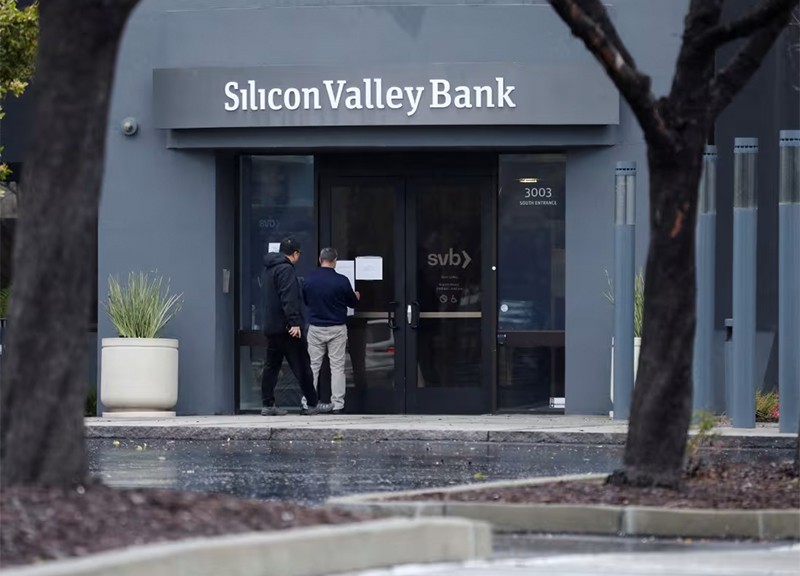
Possibilities include a U.S. financial panic, a Chinese recession, and a political crisis across the Atlantic.
By Joseph C. Sternberg / WSJ
With the U.S. presidential election entering its home stretch following Labor Day, it's time to take stock of themes for the closing months of the campaign. This column warned a year ago that a financial crisis of some sort could be come 2024's October surprise.
In a word, yes - although we should all sincerely hope such a thing doesn't happen. Worse, recent months have brought into focus several other economic risks that loom over this campaign, and that will. hang over the early months of whichever administration limps into office in January. With apologies to Donald Rumsfeld, we can't quite call these "known unknowns," but neither are they "unknown unknowns." Think of them as quasi-known uknowns.
* A financial panic in America. That nearly a year and a half has passed without incident since Silicon Valley Bank's collapse in March 2023 is less reassuring than one would wish. The key feature of the SVB episode was a solvency crisis occasioned by a rapid increase in interest rates. Higher rates blew a hole in SVB's balance sheet by reducing the value of the supposedly safe Treasurys the bank held as capital. This autumn, impending interest-rate cuts from the Federal Reserve, promises of which already are pulling down longer-term rates, offer some hope that this particular prob- lem won't repeat.
Yet the economy appears to be softening. And even if the promised cuts arrive, interest rates would remain considerably higher than they were for most of the post-2008 реriod. Impending rate cuts offer only partial comfort to commercial-real-estate borrowers and others who must refinance ultra-ultra-low-rate loans at rates that will be merely low. We're lucky that to date SVB was the worst fiasco to result from policy normalization. Can that luck hold?
* A recession in China. It's hard to point to anything going right in the Chinese economy at the moment. Headline economic growth is slowing, to 4.7% year-on-year in the second quarter from 5.3% in the first. This would be impressive in a developed economy, but might as well be a recession in a country such as China with hundreds of millions of people yet to lift out of poverty. Something other than a traditional business cycle is under way here, meaning there's little hope of a quick revival. China seems to be fall ing into a debt-deflation cycle of the sort that cost Japan two lost decades (at least). An inevitable correction of credit excesses in the property market is denting creation of new credit, stoking a fiscal crisis among overleveraged local and provincial governments, and demoralizing middle-class consumers.
As much as China's perceived economic strength tends to freak out the West, its weakness will be worse. Don't fear the flood of cheap exports Beijing will try to unleash as its default response to any economic difficulty these trade flows will be politically contentious in the West but also will be helpfully disinflationary. Rather, fear the loss of China's middle class as a source of growing demand that can help prop up Western companies if or when Western economies start to stumble. Worry also about how a sinking Chinese economy could drag its neighbors-including U.S. trading partners and allies such as South Korea and Japan- along with it.
* Political paralysis in Europe. Britain's Prime Minister Keir Starmer, elected only two months ago with a thumping majority in Parliament, already is losing political steam amid economic stagnation, a bout of rioting across the country, and internal party divisions over Israel and Gaza. France only this week got a new prime minister following President Emmanuel Macron's botched election gambit this summer, and Germany might as well not have one after the parties of Chancellor Olaf Scholz and his ragtag coalition were wiped out in last week end's legislative elections in two states.
All three of those key American allies face economic malaise (chiefly occasioned by boneheaded energy policies), fiscal emergencies arising from unreformed welfare states, and escalating social tensions around immigration. There's Europe's typical level of dysfunction, and then there's this. It's hard to think of a time when the U.K. and the Continent's largest economies were less governable or more poorly governed.
Europe's problems came to be visited on America's shores (and vice versa) via a complex interaction between Biden administration strategic weakness, European energy-policy errors, and Russian imperialism- which all led to the invasion of Ukraine, an energy and economic crisis in Europe, and a global energy- price spike that also hit the U.S. Was that chain of events a one-off, or a warning?
If Americans seem unenthusiastic about their political options this year, perhaps it's because voters intuit the complexity of the world and suspect or fear that both major-party candidates would prove inadequate to these or other challenges.
The precise degree of that inadequacy-or, more optimistically, the potential of one candidate or another to rise above his or her obvious defects in a crunch-is the biggest quasi-known unknown of the year.














